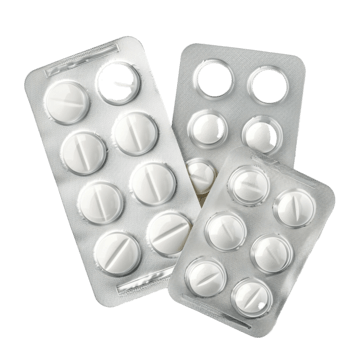Glyburide

Glyburide 2.5mg, 5mg, 10mg
Glyburide is an oral hypoglycemic medication that belongs to the sulfonylurea class, used primarily to manage blood sugar levels in individuals with type 2 diabetes. It works by stimulating the pancreas to release more insulin and improving the body’s sensitivity to insulin, which helps lower blood glucose levels. Glyburide is often prescribed in conjunction with diet and exercise to enhance overall glycemic control.
Order NowDescription
Glyburide is an oral medication used to manage blood sugar levels in individuals with type 2 diabetes. It belongs to a class of drugs known as sulfonylureas, which work by stimulating the pancreas to release more insulin, thus helping to lower blood glucose levels.
Uses / Indications
- Type 2 diabetes mellitus
- Management of hyperglycemia
- Often used in conjunction with diet and exercise
- Can be used alongside other antidiabetic medications
Dosage and Administration
Adults:
Initial dose is typically 2.5 mg to 5 mg once daily, taken with breakfast. Dosage may be adjusted based on blood sugar levels, up to a maximum of 20 mg per day.
Older adults:
Initiate treatment at a lower dose (e.g., 2.5 mg) due to a higher risk of hypoglycemia.
Note: Dosage may vary based on individual health needs and your doctor’s advice.
How It Works (Mechanism of Action)
Glyburide works by stimulating the beta cells of the pancreas to release insulin. Additionally, it may improve cellular sensitivity to insulin, thereby helping to control blood glucose levels more effectively in patients with type 2 diabetes.
Side Effects
Common side effects:
- Hypoglycemia (low blood sugar)
- Nausea
- Heartburn
- Weight gain
Rare/serious side effects:
- Severe allergic reactions (rash, itching, swelling)
- Liver or kidney problems
- Bone marrow suppression (rare)
Seek medical attention if serious side effects occur.
Precautions / Warnings
- Tell your doctor if you have liver or kidney disease, or if you are pregnant or breastfeeding.
- Use caution if taking other medications that may lower blood sugar levels.
- Regularly monitor blood sugar levels to avoid hypoglycemia.
Drug Interactions
Glyburide may interact with:
- Other antidiabetic medications (increased risk of hypoglycemia)
- Certain antibiotics and antifungals
- Medications that affect liver enzymes
- Alcohol (may enhance risk of hypoglycemia)
Always inform your healthcare provider about any other medications or supplements you’re taking.
Storage Instructions
- Store at room temperature (20°C–25°C / 68°F–77°F)
- Keep away from moisture, heat, and direct light
- Keep out of reach of children
Missed Dose / Overdose
Missed a dose?
Take it as soon as you remember. If it’s almost time for your next dose, skip the missed one. Do not double up.
Overdose symptoms:
- Severe hypoglycemia (confusion, sweating, dizziness)
- Nausea or vomiting
- Palpitations or irregular heartbeat
- Loss of consciousness (in severe cases)
Contact a poison control center or seek emergency medical help immediately.
Contraindications
- Allergic to Glyburide or other sulfonylureas
- Type 1 diabetes mellitus
- Diabetic ketoacidosis
Brand Names / Alternatives
- DiaBeta
- Micronase
- Glynase
- Generic name: Glyburide

